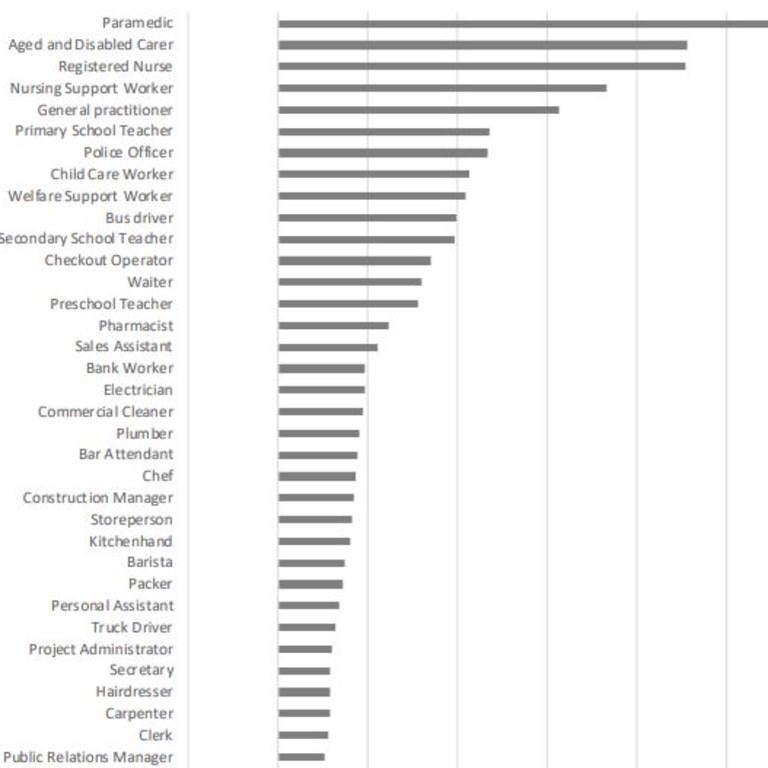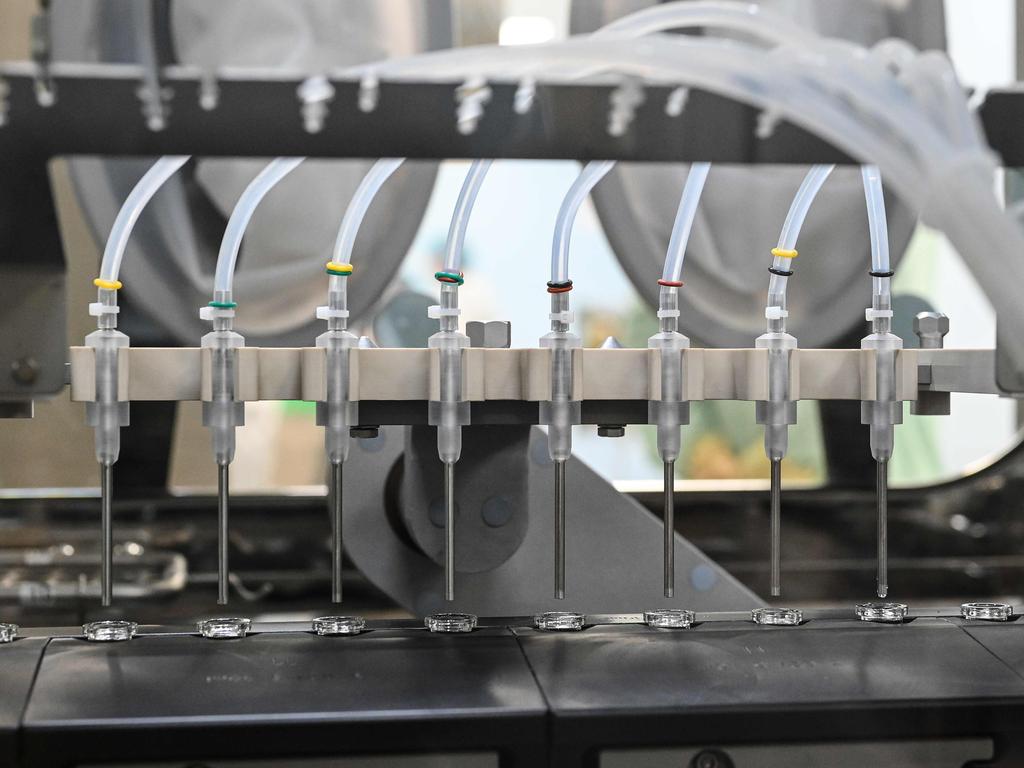Coronavirus vaccine: Group Australians think should be first to get the jab
A survey of thousands of Australians has revealed one clear group people believe should be the first in line to get the COVID-19 vaccine.

Australians have been asked who they think should be the first in line to get the COVID-19 vaccine if and when one is developed, with one group being favoured more than others.
New research from the Australian National University (ANU) surveyed 3000 Australians to determine who the public believe deserves to be given the jab first.
Unsurprisingly, the majority of votes went to those in healthcare professions, with paramedics topping the list, closely followed by nurses and aged care and disability workers.
Nursing support workers and general practitioners were also high on the list of potential coronavirus vaccine recipients.
Teachers were the next highest group of professionals on the list, putting them slightly above police officers and childcare workers.
RELATED: Follow our live coronavirus coverage

Researchers also looked into the weight Australians put on different individuals’ characteristics in terms of who should receive a vaccine and examined how respondents’ own characteristics influenced their decisions.
“The world is waiting with bated breath for a safe and effective vaccine for COVID-19. If and when it does become available, a decision will need to be made about how it will be distributed and what criteria will be used to identify who receives the vaccine first,” report co-author Professor Nicholas Biddle, from the ANU Centre for Social Research and Methods, said.
“Such a decision will inevitably take into account the health and economic benefits of some groups receiving it ahead of others.
Prof Biddle said it makes “perfect sense” that Australians would want healthcare workers to be first in line for the vaccine.
RELATED: ‘Strategic mistake’: Australia’s virus fail

“Our findings show that Australians think that people who are working on the frontline of healthcare need to be vaccinated first,” he said.
“This makes perfect sense when you consider where most of our second wave of COVID-19 infections have come from and that these are the professionals who are directly dealing with the aftermath of this pandemic on a daily basis.
“The same can be said for aged and disability carers, who are providing care to some of the people most vulnerable to the terrible effects of this virus.”
The survey also asked who respondents think should receive the vaccine based on other factors such as age, gender, health and employment status.
Those with pre-existing health conditions topped the list for people who should be a high priority to receive the vaccine.
Women were also slightly preferred over men and older Australians were slightly preferred over younger people.
Respondents were also asked whether or not people with “Asian names” should receive the vaccine first compared to people with Anglo-Celtic names, co-author Professor Matthew Gray noted.
The results showed the name of an individual had no bearing on whether they should be a priority to receive the vaccine.
“This is important because indications of at least some increase in anti-Asian views has not translated into a view that people with an Asian name should be given lower priority in access to a COVID-19 vaccine,” Professor Gray said.




